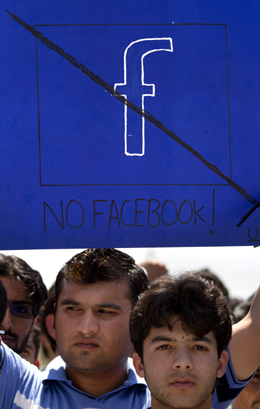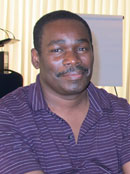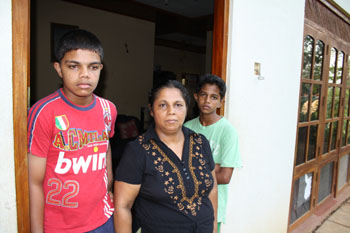
In Pakistan, a censor’s hand in Facebook, Twitter woes?
Last week, users of Facebook and Twitter in Pakistan began reporting a strange security problem. When they visited those sites, they found they were logged in–but with the accounts and privileges of complete strangers. Private Facebook information and Twitter direct messages belonging to other users were viewable, and the surprised Pakistani users had complete control…

As dissidents move online, governments fight back
Social media and cyber dissidents have exerted a increasing influence on global politics over the last few years—Twitter, for instance, was widely utilized by protesters and journalists during Iran’s 2009 post-election Green Movement, and China has been locked in conflict with Google over allegations of censorship and hacking. “Ideas in Action” with Jim Glassman, a half-hour weekly show on…

Starting from scratch: A Haitian journalist exiled in the U.S.
I arrived in New York in April 2003. It was cold.The streets of Brooklyn seemed too wide to me and the buildings huge. The number 3 train would pass over and over again like a luminous monster. From the window of my apartment, I would watch this train go by. I would also watch people walk without…

Living in limbo: The ongoing wait of journalists in exile
The e-mails started on July 15, 2009, and have continued ever since—pleas for help from Iranian journalists who fled their country often with little money and scarce provisions to northern Iraq, Turkey, Afghanistan, India, and a host of other locales around the world. Many lived in hiding throughout Iran for weeks or months before crossing perilous borders…

Journalists in Exile 2010
An exodus from Iran, East Africa At least 85 journalists fled their home countries in the past year in the face of attacks, threats, and possible imprisonment. High exile rates are seen in Iran and in the East African nations of Somalia and Ethiopia. A CPJ Special Report by María Salazar-Ferro
Video Report: From Captivity to Exile
In “From Captivity to Exile,” Canadian journalist Amanda Lindhout talks about the plight of Somali cameraman Mohamed Abdifatah Elmi. The two were abducted along with three others in 2008. Freed after many months, Elmi remains at risk and is now in exile. (3:59) Read our accompanying special report, “Journalists in Exile 2010.” Please visit our…
CPJ testimony: Press freedom in the Americas
CPJ Executive Director Joel Simon testified today before the U.S. House of Representatives’ Subcommittee on the Western Hemisphere, saying that while democracies are prevalent in Latin America, the press continues to operate with few institutional protections. This statement was submitted into the record on Monday.
CPJ Impact
News from the Committee to Protect Journalists, June 2010 UNESCO responds to protests UNESCO’s plan to bestow the Obiang International Prize for Research in the Life Sciences, named for and financed by the most repressive leader of Equatorial Guinea, was met with an outcry from the human rights community. When UNESCO announced they would be…
Sudanese editor charged with terrorism and espionage
New York, May 25, 2010—Sudanese authorities have charged an opposition journalist with terrorism and espionage and allegedly tortured him while in custody, according to local news reports. The Committee to Protect Journalists called today for the immediate release of Abu Zar al-Amin, deputy editor of the opposition daily Rai al-Shaab.